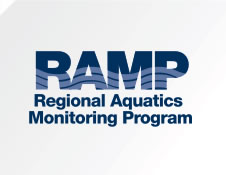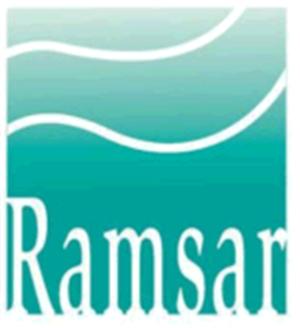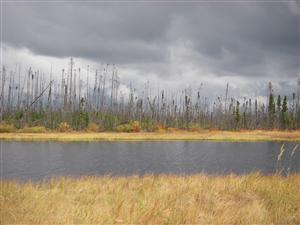Ramsar Convention on Wetlands of International Importance
Wetlands are sensitive habitats that support a wide range of species. Wetland protection is important not only for the survival of these species but also for the people who depend on the water.
The Convention on Wetlands of International Importance was signed in Ramsar, Iran in 1971 and has 157 Contracting Parties, including Canada. The Convention's mission is the conservation and wise use of all wetlands through local, regional and national actions and international cooperation, as a contribution toward sustainable development throughout the world (Ramsar COP8, 2002).
The Athabasca river delta is considered a wetland of international importance under Ramsar because it enables the migration of millions of birds every year.
In Canada, the Ramsar Convention has been implemented federally through the North American Wetlands Conservation Act and the Canadian Federal Government Policy on Wetland Conservation. The North American Wetlands Conservation Act is a tripartite agreement about wetlands between the US, Canada and Mexico that funds projects aimed at the protection of wetlands. The Canadian Federal Policy strives to ensure that wetlands in Canada are protected through: (1) developing public awareness; (2) managing wetlands on federal lands and waters and in other federal programs; (3) promoting wetland conservation in federal protected areas; (4) enhancing cooperation (with NGOs, provinces, etc.); (5) conserving wetlands of significance to Canadians; (6) ensuring a sound scientific basis for policy; and (7) promoting international actions.
At the provincial level, Ducks Unlimited has been a leader in protecting wetlands of Alberta. It played a key role in developing the Water for Life Strategy and is helping in the creation of the Alberta Wetland Policy. Ducks Unlimited also protects wetlands through education and by assisting landowners make decisions about wetlands on their properties.










